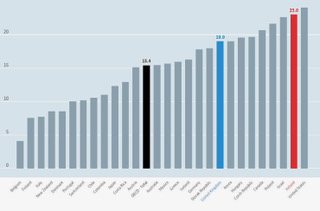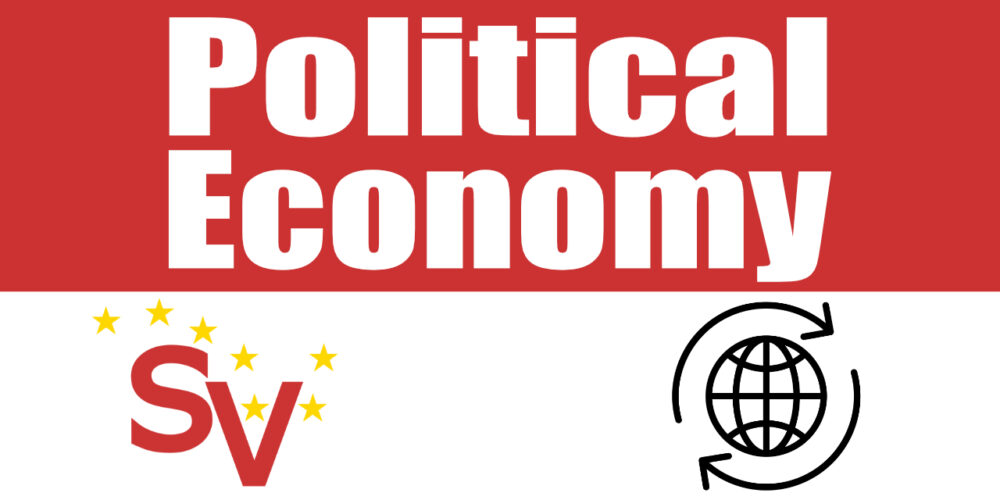In Ireland the rich are getting richer, the poor are getting poorer, and more people are falling into poverty every day.
The Central Statistics Office is the statistical agency responsible for gathering information relating to economic, social and general activities and conditions. It collects and “analyses” this type of information and publishes it regularly.
The statistics are there in plain sight. Of course the establishment media create a narrative around them to make them fit their purpose of supporting the status quo. So when the CSO finds that one in every three workers depends solely on the state pension, and will face poverty in retirement, this is reported from the opposite angle to say that two in every three workers have a private pension.
The CSO published a survey in February on income and living standards. It found that in 2022 the richest 20 per cent of people had four times the income of the poorest 20 per cent, compared with 3.8 times in 2021. The rich are getting richer.
13 per cent of people were at risk of poverty in 2022, compared with 11½ per cent in 2021. The poor are getting poorer.
20.5 per cent of people would have been at risk of poverty without covid-19 income supports in 2022, compared with 20 per cent in 2021. The number of poor people is growing.
The “Labour Force Survey” for the last three months of 2022 found that the number of people in employment in the fourth quarter of 2021 was 2.506 million, compared with 2.575 million for the fourth quarter of 2022. This is an increase of 2¾ per cent—or, put simply, there were 68,500 more people working in the last three months of 2022 than in 2021. The survey also found that the weekly hours being worked have increased, from 77.6 million hours in the fourth quarter of 2021 to 80.6 million hours in the fourth quarter of 2022—an increase of 3.9 per cent, or 3 million extra hours worked.
The number of people working has increased by 2.75 per cent, while the number of hours being worked has increased by 3.9 per cent. When you look at these three statistics together it shows that there are now more people working longer, for less.
This is inextricably linked to the fact that Ireland, at 23 per cent, has one of the highest numbers of people in Europe or North America on low pay—second out of the 37 countries of the OECD. Only the United States, at 24.1 per cent, has a higher number of people on low pay. The United States is ranked as the richest country in the world, and Ireland is ranked as the second-richest country in Europe. This is not an accident, nor is it unrelated to the increase in low-paid jobs, or extra hours being worked per worker.
Unfortunately, being a rich country doesn’t mean an end to poverty—quite the opposite: in fact poverty increases as the owners of industry take an ever-larger share of the wealth produced by workers. There is no trickle down of wealth: there is a flood up.
The accumulation of wealth is directly linked to the exploitation of workers. Karl Marx explained this when he wrote: “Accumulation of wealth at one pole is at the same time accumulation of misery, agony of toil, slavery, ignorance, brutality, mental degradation, at the opposite pole.” Leo Varadkar put it another way when he said: “One man’s rent is another man’s income.” Put another way, one man’s boom is another man’s bust.
The narrative created by the state and the media, of course, is that there are now more people working than ever before, in a booming economy with the highest growth rate in Europe. The Government is doing a fantastic job.
Yes, there are plenty of jobs; but you would need to have two or three to afford to rent a home or have children.
When the CSO statistics are analysed it becomes clear that the more people there are working the more poverty and inequality grows. The economy is built on poverty wages. It’s called capitalism.
Workers need to join up these dots, work out what a “booming economy” really means. For workers it’s low pay, high rents, chronic public services, and ever-increasing inequality—all to support the lavish life of the ruling class.
Our poverty pays for their luxury. The opposite to poverty is not wealth: it is justice.

Low pay is defined by the OECD as earnings below two-thirds of a country’s median income. The chart above(courtesy of the OECD) displays the proportion of the work force in each country that is working for low pay.






